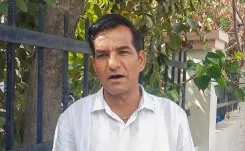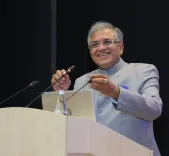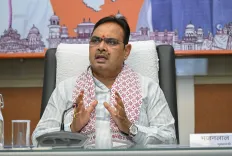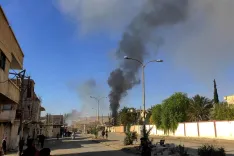Is Forced or Lured Conversion Illegal? BJP Leaders Weigh In on Maharashtra's Plan for Anti-Conversion Law
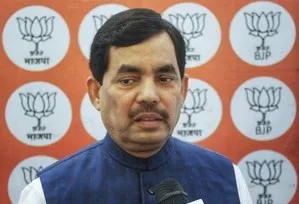
Synopsis
Key Takeaways
- Maharashtra is set to introduce an anti-conversion law.
- The law aims to prevent forced religious conversions.
- Political leaders from across the spectrum, including BJP and Shiv Sena, support this initiative.
- The legislation will address coercion, especially in tribal areas.
- Maharashtra will join 10 other states with similar laws.
New Delhi, July 16 (IASN) Maharashtra is on the verge of becoming the 11th state in India to enact a law prohibiting forced religious conversions, garnering robust backing from leaders across the political spectrum.
BJP national spokesperson Shahnawaz Hussain and Shiv Sena (Shinde faction) leader Sanjay Nirupam have praised the state government’s initiative, emphasizing its necessity to prevent conversions executed through inducement or coercion.
"A law against religious conversions is essential. Maharashtra is set to implement a more stringent law compared to other states, and it should be adopted nationwide," stated Shahnawaz Hussain in an interview with IANS.
"Converting individuals through offers of greed or incentives is wrong," he continued.
Sanjay Nirupam, the spokesperson for Shiv Sena, shared this viewpoint, noting that religious conversion has long been a critical issue.
"We inhabit a free India today, where the Constitution clearly supports religious freedom. Forced or lured conversions are unlawful. Numerous states have already enacted such regulations, and Maharashtra is poised to be the eleventh. We endorse this state government initiative," Nirupam remarked.
"Religious conversion has perpetually been a major concern in our nation. During the era of foreign dominion under the Mughals and the British, we lacked the strength to resist it," he added.
The state government, led by Chief Minister Devendra Fadnavis, has established a committee under the Director General of Police to evaluate anti-conversion laws in other states and compile a report.
Pankaj Bhoyar, the Minister of State for Home (Rural), announced in the Legislative Council on Monday that a bill will be introduced in the winter session based on the committee’s recommendations.
On July 9, Revenue Minister Chandrashekhar Bawankule informed the Assembly that this law aims to address conversions, particularly in tribal regions, where coercion and inducements are reportedly prevalent.
The anticipated legislation is expected to incorporate more stringent provisions than analogous laws in other states. Following its enactment, Maharashtra will join 10 other states that have already implemented anti-conversion laws. The states with such laws include Uttar Pradesh, Madhya Pradesh, Gujarat, Rajasthan, Odisha, Chhattisgarh, Andhra Pradesh, Himachal Pradesh, Jharkhand, and Uttarakhand.

